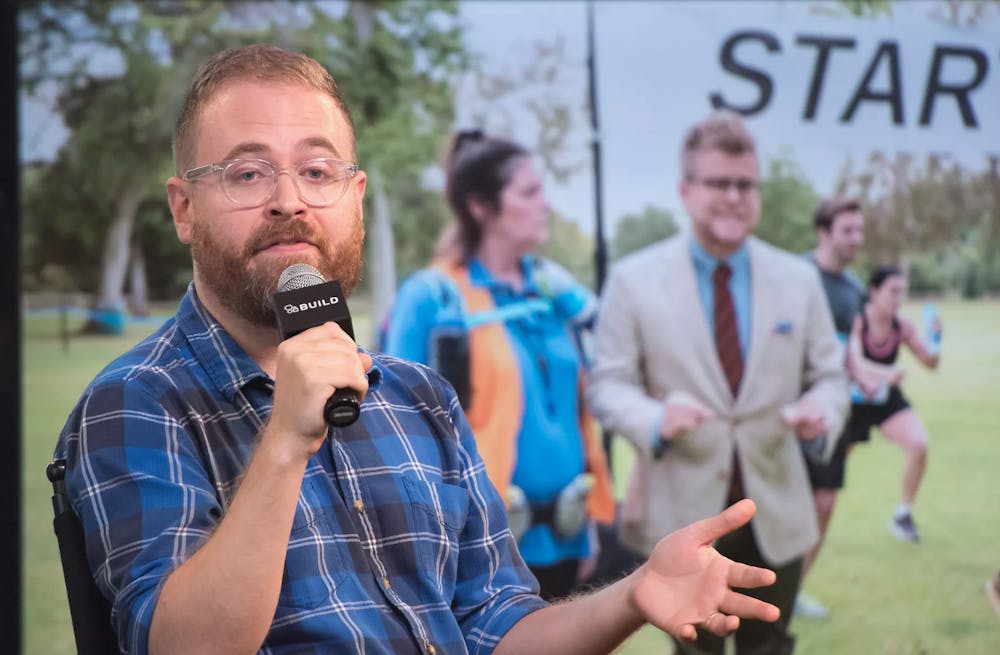After Street covered CollegeHumor’s streaming service, Dropout, Street sat down with CollegeHumor’s CEO, Sam Reich. Reich became CEO after CollegeHumor’s parent company severed ties in early 2020, and while the sketch comedy platform has always dealed in viral content, navigating the transition to streaming has been both rewarding and challenging.
According to Reich, Dropout stems from the freedom streaming services can give comedy writers and show. He said the subscription model "allows its creators to stay the most autonomous and in a position of power when it comes to making content." This empowers the viewer, giving audiences "content that [they] just like more and feel like is tailored more to them." This is a sentiment echoed by CollegeHumor cast member Brennan Lee Mulligan, with whom Street chatted with about his show, Dimension 20. Although Reich remarks that it was "kind of an odd move in late 2018," he adds that another view of the situation is that they "should've done it ten years earlier."
A critical element of this shift for multiple comedy channels who used to be immensely popular on YouTube is the site’s policy of demonetizing and taking down non–family friendly and non–advertiser friendly content, or which may not fit their guidelines. "This is a recipe for content that, over time, becomes just a little bit like milquetoast," Reich said. "Everything sort of becomes a little bit more mediocre.” Streaming services like Dropout allow creators to have the greatest creative agency. Here, content can be highly political and sketches don't have to censor inappropriate language.
According to Reich, YouTube’s algorithm no longer incentivizes scripted content like sketches, and instead prefers long–form, unscripted content. The immense popularity of channels like CollegeHumor, Funny or Die, and Rooster Teeth achieved a few years ago is no longer possible, especially not with how difficult it is to write high–quality sketches.
“'Sketch,’ I think, in a way has always gravitated to the platform where short–term content is most popular, because a lot of the best sketches are just really quick and sharp that way,” Reich said. “And so now I think some of the best ‘sketches’ are seen on TikTok because it’s the platform where short–form rules. It’s not very high production value, but I don’t know that matters really."
Though most adults and older entertainers tend to look down on TikTok in the same way that traditional creators eschewed YouTube, Reich just commented, “Well, I’m not a real adult,” a sentiment both perfectly relatable and perfect synechdoic for the mission of Dropout.
Dropout is continuing to release new content during quarantine, though everything is now filmed virtually. Reich believes that it's their responsibility "as... [creative people to]...try and embrace that fight [and] the conditions under which you're creating." As a result, he seeks to "embrace the fact that [they're] doing this via video conference." In this vein, like other businesses, CollegeHumor has found a way to adapt to the new entertainment landscape, sometimes through hilarious sketches about video–conferencing itself.
Reich, too, hosts a game show formatted series on Dropout, Game Changer, one of the only series where he’s a regular on–screen presence. It features different cast members each episode, and they play a different game with a new set of rules. Reich himself was surprised by the success of his own series on his own platform.
“I always felt a bit bashful about it. I’m in a position of power, and I don’t want to abuse that power," Reich said. However, he eventually decided to take up the mantle of host after no one else stepped up to claim the role. “At a certain point, I was like, 'Maybe I’ll just try to go off and do this myself.' It feels a little awkward, but I’m not even really the star of the show. The cast members are the stars of the show.”
Despite CollegeHumor’s shaky status since it claimed independence from its parent company, Dropout is doing well, according to Reich. Even so, he called what happened to their company "inexplicable", and admitted that "it's undeniably sad and difficult." Though most of the company’s employees were let go, many of them still work together on projects for Dropout. That said, many have also moved onto careers in other areas of entertainment like television.
And yet, in spite of quarantine, which Reich said "has arguably made it even more difficult than it would otherwise be for [them] to get back to any semblance of normalcy," the company is stable and headed on "a slow upward trajectory." Better yet, viewers will see "more from [them], and not less." This, Reich said, "is actually kind of remarkable given not only everything that’s happened to us, but everything that’s happened to the country.”
In the midst of rapid change for CollegeHumor, the company maintains rapport between all of the creators and performers on Dropout—which is what makes the series on the service authentic and fun. The genuine friendship between the CollegeHumor cast is palpable through the screen, serving as of evidence of Reich's commitment to small–time, high impact talent. “I want to be working with this pool of creators for the rest of my career," Reich said.

